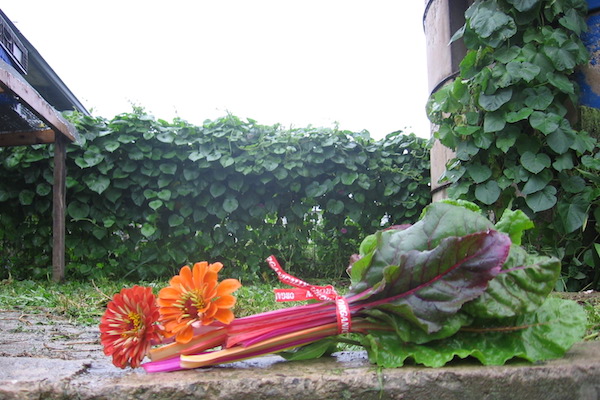
Subscribe: Apple Podcasts | Google Podcasts | Spotify | Email | TuneIn | RSS | More
In Edible-Alpha® podcast #29, Tera interviews Rufus Haucke, owner of Keewaydin Farms, a 200-acre diversified organic vegetable farm that also works aggregating local farmer’s produce in a distribution business. He slowly took over the farm by buying it in increments with the help of the Farm Service Agency (FSA) and eventually purchased more acres in conjunction with his brother and sister, later buying them out.
During this time, Rufus was also working as a CDL delivery driver and in other capacities for a nearby farm that frequently flooded. While the floods eventually led the farm to go out of business, the farm’s owners had developed relationships with nearby farmers to fill gaps in supply caused by the floods, providing a de facto distribution business for those farmers to connect with wholesale customers. Because Rufus knew these people as well and because he saw an opportunity to take advantage of the growing interest in local food, he proposed continuing the distribution business. What became Keewaydin Organics eventually set up a base of operations for aggregating local food in a building in Viroqua managed by the Viroqua Economic Development Authority starting in 2009.
The business’ sales peaked in 2012 at over $800,000 with Rufus coordinating production from over 100 different producers (including his own farm) throughout the season. However, he discovered that the bigger the business got, the more money it lost. This was due in retrospect to not being capitalized appropriately, to overbuilding capacity in a space that was too big and to being too far away from his producers to achieve efficiencies in product procurement. Rufus reflected that at the time, he didn’t have the business experience to know that he could say no to the building or to venture capital money that he ended up accepting to help finance the business, but in retrospect both were not a good fit.
Now he had a decision to make: expand rapidly, likely to $2 million – $3 million in sales, or contract. He chose to contract. This has meant he still owes many of those suppliers money, one of the most difficult things about his decision. But, he has remained in open and honest communication with those producers and has focused on rebuilding relationships with them while right sizing the business to achieve profitability.
In 2016, after he had shrunk the business to $140,000 in sales, he was able to grow again to $180,000 in 2017. To achieve efficiencies, he moved the aggregation function onto his farm and works only with suppliers who are physically close by. He is always focused on increasing efficiency of operations and shrinking his expenses in relation to his income. Willy Street Co-op, a cooperative grocery store in Madison, WI, financed his moving the aggregation functions on to the farm and his purchase of season extension equipment with a $50,000 loan. Partnering with them in this way has given his business a lifeline.
While Rufus has been through many trials in his business, he couldn’t imagine doing anything else and has learned a lot about business. His advice to aspiring farmer entrepreneurs is to seize upon business opportunities but know that you can say no to certain opportunities. He suggests surrounding yourself with people who can help your business be successful and in looking frequently and diligently at your numbers to understand what is going on in your business and what efficiencies are still possible.


